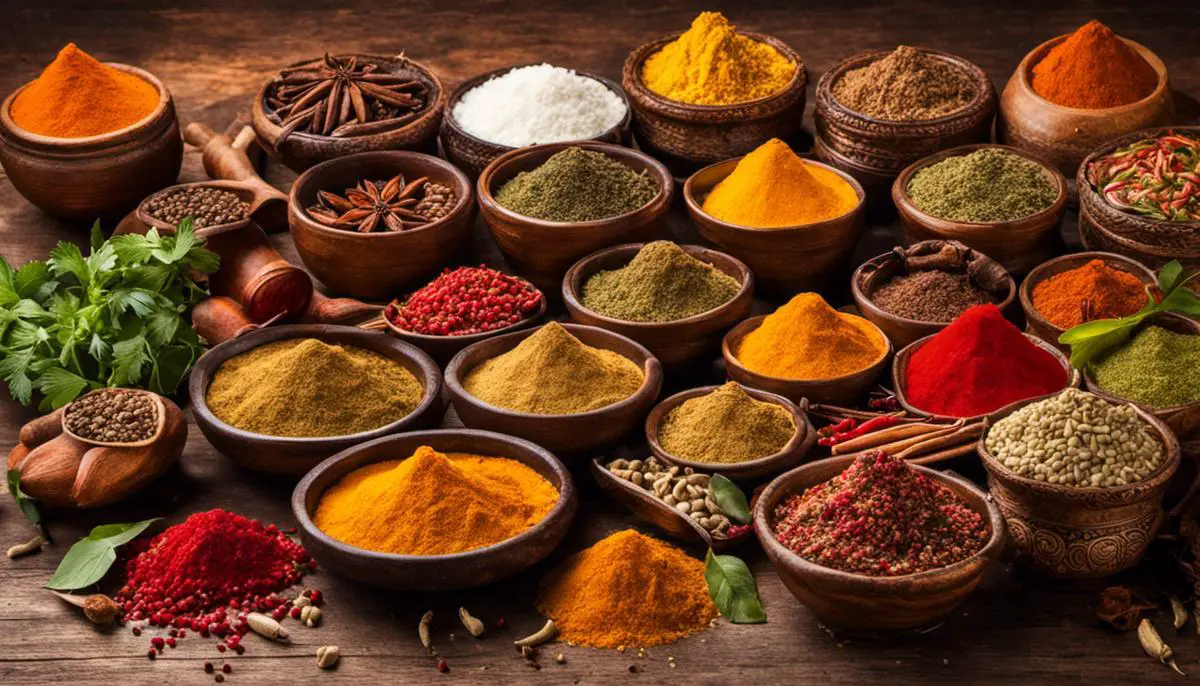Delving into the fascinating niche of skincare for Indian skin types, one is presented with a rich tapestry of intricate elements at play. It’s vital to appreciate the unique nuances and characteristics that pertain specifically to Indian skin, enabling a more precise approach to skincare. From genetic factors to varying environmental influences, there exists an array of prospects that can tailor personalized care. Likewise, understanding and selecting appropriate skincare products for Indian skin, which caters to its profound susceptibility to hyperpigmentation and premature aging is paramount. The ingredients of these products often echo the calming and medicinal prowess of Indian herbs such as turmeric, neem, and sandalwood. In the realm of skincare, nutrition can’t be understated, especially in the case of Indian skin where a balanced diet rich in traditional Indian essentials bolsters skin health. Lastly, the bedrock of a healthy skin upkeep is a regimented skincare routine inclusive of cleansing, toning, moisturizing, and exfoliating, coupled with the judicious use of sunscreen and night creams.
Understanding Indian Skin Type
Characteristics of Indian Skin
Indian skin is classified under Fitzpatrick skin types III to V. This signifies that it has a substantial amount of the pigment melanin, which is responsible for skin, hair, and eye color. Consequently, Indian skin tends to range from light brown to dark brown shades and often has a warm, yellow or olive undertone. Melanin gives Indian skin a natural sun protection factor (SPF) but it’s important to note that the SPF isn’t high enough to prevent sun damage completely.
Genetic Makeup of Indian Skin
On a genetic level, Indian skin has a strong and exceptionally thick stratum corneum, the outermost layer of the skin. This layer is responsible for skin’s elasticity, hydration, and barrier function against environmental stressors.
There is also a high density of melanocytes, the cells that produce melanin. This combination of features means Indian skin tends to age slower, as the high melanin levels provide some protection from aging sun damage. However, it also means Indian skin is more prone to hyperpigmentation, dark patches that appear on the skin due to excess melanin production.
How Indian Skin Responds to Environmental Factors
Indian skin’s highly melanin-rich makeup can react to environmental factors differently than lighter skin tones. Sun exposure can lead to tanning, burns, and the risk of hyperpigmentation. Climate plays a significant role for Indian skin, with hotter, humid climates potentially leading to oily skin and increased breakouts, whereas colder climates can lead to dry skin.
Understanding Specific Care Needs of Indian Skin
Knowing the above characteristics will help you understand the specific care Indian skin needs. To manage the risk of hyperpigmentation, sunscreen use is important, even though the skin naturally contains more melanin. Look for broad-spectrum sunscreens to protect against both UVA and UVB rays.
Regular exfoliation can help address the propensity towards oiliness and clogged pores, but be mindful to not over-exfoliate as it can damage the skin’s natural barrier. Using a gentle exfoliator 1-2 times per week is typically sufficient.
Hydrating the skin is important, especially in drier climates, as it can prevent the skin from producing excess oil. A good, lightweight moisturizer should be a staple in the skincare routine.
Lastly, owing to its propensity towards hyperpigmentation, products with ingredients like Vitamin C, niacinamide, retinol, or kojic acid can help to brighten the skin and even out discoloration. Before using these products, it’s important to conduct a patch test as they can potentially irritate the skin.
Ultimately, each person’s skin is unique, regardless of race or ethnicity.
It’s crucial to listen to your skin and adjust your skincare routine accordingly. Consulting with a dermatologist can give you personalized advice and treatment recommendations.

Appropriate Skincare Products
Identifying Suitable Skincare Products for Indian Skin
The first step to care for Indian skin is identifying suitable skincare products. Indian skin tends to be naturally oily and susceptible to hyperpigmentation, dark spots, and premature aging. Therefore, skincare products for this skin type should be able to address these issues effectively. Because of the warm and often humid climate of India, skincare products with powerful hydration and anti-aging properties are beneficial.
In general, it is paramount to choose skincare products that do not contain harsh chemicals or artificial fragrances, as these can over-stimulate and damage the skin, leading to dryness, irritation, and breakouts. Instead, opt for products that feature all-natural and organic ingredients.
Examining Ingredients: Natural Remedies for Indian Skin
Many traditional Indian ingredients have proven to be highly beneficial for Indian skin. For instance, products with turmeric can help in reducing inflammation, fighting off acne, and brightening up the skin. Sandalwood is another effective ingredient traditionally used in Indian skincare regimen due to its power in removing tan, curing acne, and reducing the appearance of wrinkles.
Neem, a plant widely grown in India, can be a potent addition to skincare products due to its antibacterial qualities that help in removing dirt, acne, and excess oils. Similarly, honey and aloe vera are other natural ingredients to look for as they moisturize the skin and offer soothing effects.
Conducting Research on Product Effectiveness
Researching about various skincare products and their effectiveness before purchasing them is crucial. A number of resources are available for this purpose including product reviews on e-commerce sites, blogs, and forums that discuss skincare products. Additionally, you can check information provided by manufacturers and medical research publications.
To meticulously understand product ingredients and their functions, refer to the Environmental Working Group’s (EWG) Skin Deep Database. It contains detailed information about various skincare product ingredients and their safety ratings.
Consulting Dermatologists
Lastly, consulting a dermatologist can be immensely helpful, especially for those with sensitive or problematic skin. A dermatologist can better examine your skin type and condition, and guide you in choosing the most suitable skin care products or ingredients. Their professional advice can lend you a more systematic and scientific approach in caring for your skin.

Meal Plans For Healthy Skin
Recognizing the Role of Traditional Indian Diet in Skin Health
The Indian diet has always been rich in various nutritious elements that specifically contribute to skin health. Noteworthy ingredients include turmeric, honey, yogurt, and various fruits and vegetables rich in fiber, antioxidants, and healthy fats. This mixture of vitamins, minerals, and proteins plays an indispensable role in benefiting Indian skin texture and health. Connecting traditional Indian dietary aspects with skincare ensures a deeper understanding of maintaining and enhancing skin health.
Understanding the Significance of Traditional Indian Ingredients
Turmeric, which has anti-inflammatory and antioxidant benefits, is an integral component of many Indian meals and is also applied topically on the skin. Honey, know for its natural humectant properties, allows it to improve the skin’s moisture retention. Yogurt has probiotic benefits and also serves as an excellent exfoliator and moisturizer when applied as a mask. Apart from these, fruits and vegetables like avocados, lime, cucumber, tomatoes, etc., are rich in antioxidants and vitamins A, C, and E. These work to combat free radicals, promote skin cell growth, and help in maintaining skin elasticity, considerably reducing the signs of aging.
The Role of a Balanced Meal Plan
A balanced meal plan is significant in maintaining Indian skin health. This is due to the diverse nutritional needs that various Indian skin types require. Therefore, it is essential to include various food groups in the diet. A balanced meal plan that aids in facilitating skin health should ideally include whole grains, lean proteins, and a variety of fruits and vegetables to ensure optimal intake of essential nutrients and antioxidants. Skin-healthy fats, like those found in nuts and seeds, avocados, and olive oil, should also be a part of the meal plan. Hydration also plays a vital role in maintaining skin health, thus adequate water, and fluids like coconut water, which is rich in electrolytes, should be consumed regularly.
Incorporating Traditional Indian Spices in Diet
Spices play a central role in Indian cuisine, many which have essential healing properties that benefit the skin. Cloves, black pepper, and garlic possess antiviral and antibacterial properties that help fight acne. Cinnamon is known for its antimicrobial properties, and it helps keep the skin clear. Similarly, fenugreek seeds help in reducing skin inflammation and marks, and cardamom refreshes the skin. Therefore, incorporating these spices into daily meals could prove beneficial.
By marrying traditional dietary staples, a balanced meal plan, and the regular intake of hydration, you can ensure that your Indian skin remains healthy and glowing!

Establishing a Consistent Skincare Regimen
Understanding the Complexion-Based Skincare Routine
Indian skin tends to be more melanin-rich compared to other ethnicities, meaning that it has more natural sun protection but is also more prone to hyperpigmentation and issues like dark spots. It’s crucial to tailor a skincare routine accordingly with proper steps like cleansing, toning, moisturizing, and regular exfoliating.
Skin Cleansing as the First Step
Cleansing the face using a gentle, soap-free product is crucial for maintaining clean skin. Avoid using hot water since it can strip the skin of its natural oils. Instead, use lukewarm water to wash your face. Particularly for Indian skin, a cleansing milk or a foaming cleanser is beneficial. These products not only clean the skin but also keep it soft, supple, bright, and radiantly fresh.
Skin Toning Insurance
A skin toner ideally hydrates the skin and maintains its PH balance while removing stubborn dirt and oil and preparing the skin for the next steps of the routine. Go with a hydrating toner that doesn’t contain alcohol, as it may cause dryness.
Moisturizing for Indian Skin
The next step is moisturizing to provide the skin with long-term hydration. Those with drier skin types may prefer cream-based moisturizers, while people with oily skin would do well using a gel or water-based formulation. Moisturizing twice a day, once in the morning and once at night, can yield visible results over time.
Regular Exfoliation Is Key
Exfoliation plays a vital role in removing dead skin cells and unclogging pores, hence it should be incorporated into your skincare routine at least once or twice a week. For Indian skin, people might want to opt for a gentle exfoliant that is not too harsh to help keep the skin glowing.
Sunscreen to Guard Against UV Rays
Sunscreen is incredibly vital, regardless of your complexion. The melanin-rich Indian skin might have higher natural sun protection, but that doesn’t mean it’s immune to the harmful effects of UV rays. A broad-spectrum sunscreen with an SPF of at least 30 should be applied before stepping outside.
The Role of Night Creams
Night creams come packed with beneficial ingredients that work on your skin while you sleep. A night cream with ingredients like retinol, peptides, or vitamin C would do well for Indian skin, as these ingredients address hyperpigmentation, signs of aging, and overall skin health.

The exploration of skincare for Indian skin shines light on the importance of individual skin characteristics, the powerhouse of traditional Indian ingredients and the critical role of a sublime skincare routine. The road to skin health is never a one-size-fits-all solution; it requires a finely tuned blend of understanding your specific skin needs, a carefully curated selection of suitable skincare products, a nutritious diet plan, and a consistent skincare regimen. Skincare is a deeply personal and immersive journey, one that asks for mindfulness, knowledge, and patience. Indians’ rich pigment, texture, and tone have stood the test of time and elements; its grace only deepens with suitable, loving care. A trusted skincare routine that navigates the perks and quirks of Indian skin proves to be a celebration of its unparalled beauty. It’s all about discovering what works best for you, enveloping your skin in a cocoon of care and nourishment, and delighting in the rewards of radiant, healthy skin.

Leave a Reply